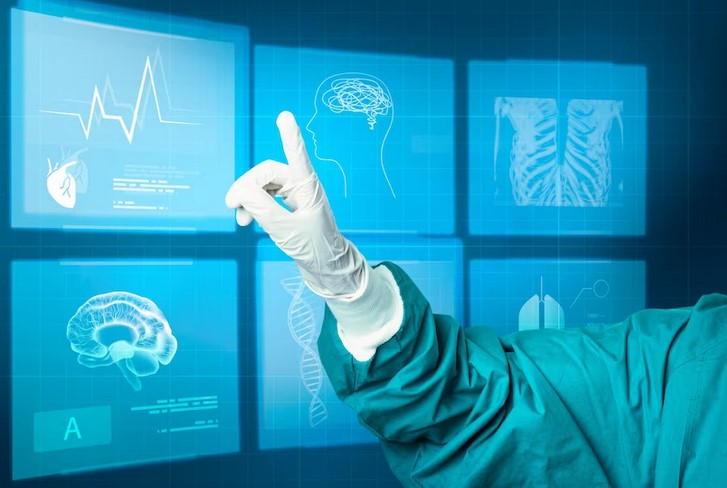Regular Health Screenings
Health screening is a crucial aspect of preventive healthcare, allowing individuals to detect any potential health issues before they become more severe. In this comprehensive guide, we will discuss the importance of regular health screenings, the types of screenings available, and what to expect during a health screening appointment.
Explanation of what health screening is: Health screening is a crucial aspect of preventive healthcare that allows individuals to detect any potential health issues before they become more severe.
Purpose of the guide: This comprehensive guide will discuss the importance of regular health screenings, the types of screenings available, and what to expect during a health screening appointment.
What types of health screenings are available? The types of health screenings available vary based on age, gender, and overall health. Common screenings include:
- Mammograms for women to detect breast cancer
- Prostate exams for men to detect prostate cancer
- Cholesterol and blood pressure tests to monitor heart health
- Colorectal cancer screenings for both men and women
- Pap smears for women to detect cervical cancer
It’s important to note that health screenings are not just for adults – children and adolescents also need regular health screenings. This may include vaccinations, hearing and vision tests, and developmental screenings.
What to expect during a health screening appointment Health screening appointments usually start with a physical exam and a discussion of your medical history and current symptoms. Depending on the type of screening, you may need to fast for several hours before the appointment, as well as provide a blood or urine sample. During the screening, the healthcare provider will examine you and may use equipment such as a stethoscope or ultrasound to gather information about your health.
Why are health screenings important?
Why are health screenings important? Health screenings are important because they allow individuals to identify and address health issues early on. Early detection of potential health problems can improve outcomes, increase treatment options, and even prevent the development of more serious conditions. For example, regular mammograms can detect breast cancer in its early stages, greatly increasing the chances of successful treatment.
Regular health screenings are important because they allow individuals to identify and address health issues early on, improving outcomes and increasing treatment options, and even preventing the development of more serious conditions.
Explanation of early detection:
Health screenings allow individuals to detect potential health problems early on, improving the chances of successful treatment.
Improved outcomes and increased treatment options:
Early detection of health issues through screenings can lead to improved outcomes and increase treatment options.
Prevention of more serious conditions:
By detecting health issues early on, individuals can prevent the development of more serious conditions.
Example:
Regular mammograms and breast cancer detection: For example, regular mammograms can detect breast cancer in its early stages, greatly increasing the chances of successful treatment.
Types of Health Screenings
A. Screenings based on age, gender, and overall health:
The types of health screenings available vary based on age, gender, and overall health.
B. Common screenings for adults:
Common screenings for adults include mammograms for women to detect breast cancer, prostate exams for men to detect prostate cancer, cholesterol and blood pressure tests to monitor heart health, colorectal cancer screenings for both men and women, and pap smears for women to detect cervical cancer.
C. Screenings for children and adolescents:
It’s important to note that health screenings are not just for adults – children and adolescents also need regular health screenings. This may include vaccinations, hearing and vision tests, and developmental screenings.
What to Expect During a Health Screening Appointment
A. Physical exam: A health screening appointment often starts with a physical exam, where the healthcare provider will check vital signs and perform a general examination.
B. Discussion of medical history and current symptoms: The healthcare provider will ask about the patient’s medical history and any current symptoms they may be experiencing.
C. Fasting requirements: Depending on the type of screening, the patient may be required to fast for several hours before the appointment.
D. Blood or urine sample: The healthcare provider may request a blood or urine sample for laboratory testing.
E. Examination by healthcare provider: The healthcare provider will perform a more in-depth examination, using tools such as a stethoscope or ultrasound.
F. Use of equipment: The use of equipment such as a mammogram machine or colonoscopy may be necessary, depending on the type of screening.
Conclusion
1. Recap of the importance of regular health screenings: Regular health screenings are crucial for detecting potential health issues early and improving outcomes and treatment options.
2. Encouragement to schedule a health screening appointment: Individuals are encouraged to schedule regular health screening appointments to take control of their health and well-being.
3. Final thoughts on taking control of health: Taking control of one’s health is a proactive and important step towards a healthy and fulfilling life. Regular health screenings are just one aspect of this, and should be incorporated into an overall healthy lifestyle.
 Atechguide Online Banking & Android App
Atechguide Online Banking & Android App
